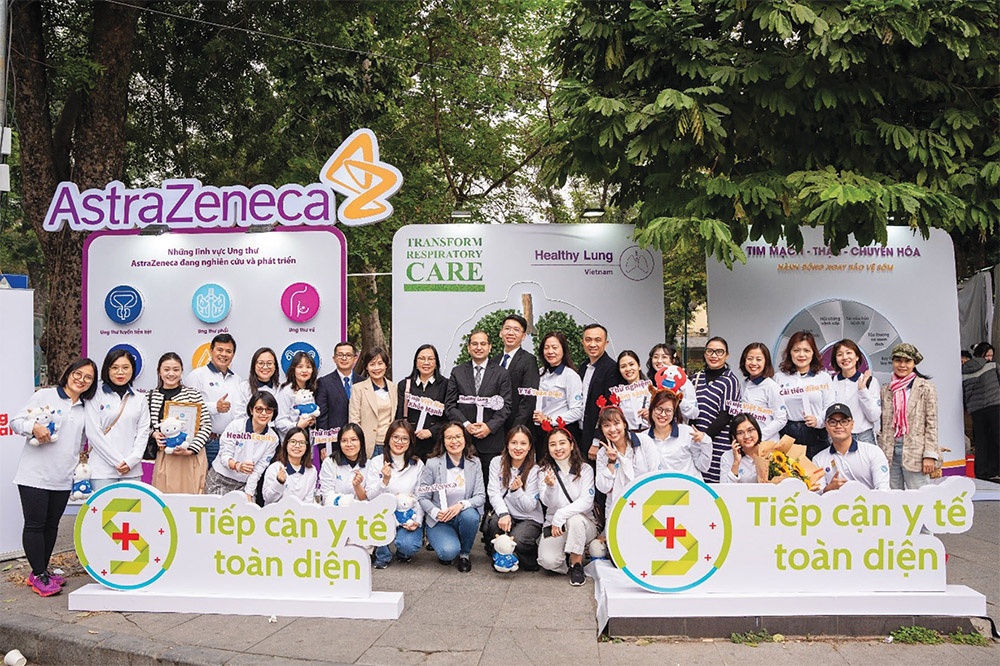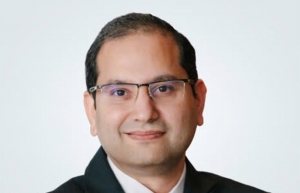AstraZeneca joins efforts for universal health coverage
A meeting on a comprehensive health access programme was organised on December 21 in Hanoi, directed by the Central Committee of Ho Chi Minh Communist Youth Union and the Ministry of Health (MoH), and carried out by the Vietnam Young Physicians Association (VYPA) and partners such as AstraZeneca Vietnam.
 |
| AstraZeneca joins efforts for universal health coverage |
Addressing the meeting, Nguyen Van Thuan, Deputy Minister of Health, said that the ministry has deployed many strategies in disease prevention and control, as well as in community healthcare. In particular, the focus has been on managing non-communicable diseases (NCDs) and closely monitoring the situation of infectious diseases.
“The programme is an initiative that demonstrates the aspiration to improve the quality of healthcare, affirming the central role of the young generation, especially young doctors, in the development of the Vietnamese healthcare sector,” he said.
The initiative identifies five specific goals from now until 2030. They include having at least half of district medical facilities to be trained and transferred AI technology for screening for lung diseases and other chronic diseases; reducing tobacco use among young men to below 30 per cent and zero young people using e-cigarettes; and piloting the use of AI as a pre-screening tool, as a basis for health insurance to pay for chronic disease screening.
Between 2025 and 2030, partners will accompany the Vietnam Youth Union and the VYPA to organise health partnership conferences, policy dialogues with the government and the National Assembly, support programmes, and also to improve grassroots health capacity and examination initiatives in remote, isolated, and disadvantaged areas.
Clinical research will be conducted to generate evidence of the impact of the health equity programme, particularly in lung health. Its success will provide a solid foundation for other activities aimed at improving the health of patients with chronic diseases such as hypertension, diabetes, heart failure, kidney failure, and various cancers.
According to the VYPA, health equity is a goal that requires significant effort to achieve. By combining the right policies, effective investment and society’s participation, Vietnam can move closer to ensuring that all people, regardless of geography or circumstances, have access to quality health services.
Barriers to achieving universal health coverage still exist. With an ageing population, climate change, and the rise of chronic diseases, this issue is becoming increasingly severe, and health disparities are widening. Nonetheless, 80 per cent of NCDs are preventable and can be better managed through improved access to screening services, early disease detection, and management.
Dr. Ha Duc Anh, chairman of the VYPA, said, “The activities focus on mobilising the broad participation of the community, professional units, and organisations to improve diagnostic capacity, improve the quality of treatment, and boost management of chronic NCDs through the deployment of innovative solutions such as AI tools.”
In recent times, the association, AstraZeneca Vietnam, and other partners have implemented many initiatives such as CAREME, the Health Innovation Network, and activities focusing on screening, early diagnosis, and improving the quality of treatment, care, and management of NCDs through digital tools. They have also combined traditional medicine with AI, the Internet of Things, and remote treatment.
AstraZeneca Vietnam has committed to supporting one million AI readings per year to screen lung disease, tuberculosis, and lung cancer. It also supports NCD screening in the community for 20,000 people annually, as well as many activities to promote science and technology and green health.
“Our mission is to improve healthcare outcomes for everyone with a patient-centred approach to ensure that all individuals can live their healthiest lives,” said Atul Tandon, general director of AstraZeneca Vietnam at the meeting. “By applying a health equity perspective across our entire business operations, we strive to better understand the factors contributing to access gaps among different population groups.”
In Vietnam, NCDs in lung health, including cancer, chronic obstructive pulmonary disease (COPD) and asthma, are among the leading causes of disease burdens. Lung cancer ranks second among leading cancers by number of deaths, with 75 per cent of patients being diagnosed at a terminal stage, resulting in a five-year survival rate of only 14.8 per cent. Meanwhile, the prevalence of COPD in Vietnam ranks highest in the Asia-Pacific region, with only 35 per cent of patients detected at an early stage before complications.
 | AstraZeneca reinforces commitment to healthcare Pharma giant AstraZeneca is solidifying its position as a pioneer in healthcare innovation in Vietnam. |
 | AstraZeneca pledges further progress for healthcare environment in Vietnam AstraZeneca is strengthening local partnerships to unlock the power of science and improve access to healthcare. Atul Tandon, general director of AstraZeneca Vietnam, discussed with VIR’s Minh Anh about the vision and next steps. |
 | AstraZeneca takes action to drive sustainability With an increase in ageing populations, a rising burden of chronic disease, and the growing impact of the climate crisis on health, health systems around the world are struggling to meet people’s health needs. This strain is exacerbating existing inequities in healthcare, and vulnerable populations continue to be the most affected. |
What the stars mean:
★ Poor ★ ★ Promising ★★★ Good ★★★★ Very good ★★★★★ Exceptional
 Tag:
Tag:
Related Contents
Latest News
More News
- A golden time to shine within ASEAN (February 19, 2026 | 20:22)
- Vietnam’s pivotal year for advancing sustainability (February 19, 2026 | 08:44)
- Strengthening the core role of industry and trade (February 19, 2026 | 08:35)
- Future orientations for healthcare improvements (February 19, 2026 | 08:29)
- Infrastructure orientations suitable for a new chapter (February 19, 2026 | 08:15)
- Innovation breakthroughs that can elevate the nation (February 19, 2026 | 08:08)
- ABB Robotics hosts SOMA Value Provider Conference in Vietnam (February 19, 2026 | 08:00)
- Entire financial sector steps firmly into a new spring (February 17, 2026 | 13:40)
- Digital security fundamental for better and faster decision-making (February 13, 2026 | 10:50)
- Aircraft makers urge out-the-box thinking (February 13, 2026 | 10:39)














 Mobile Version
Mobile Version